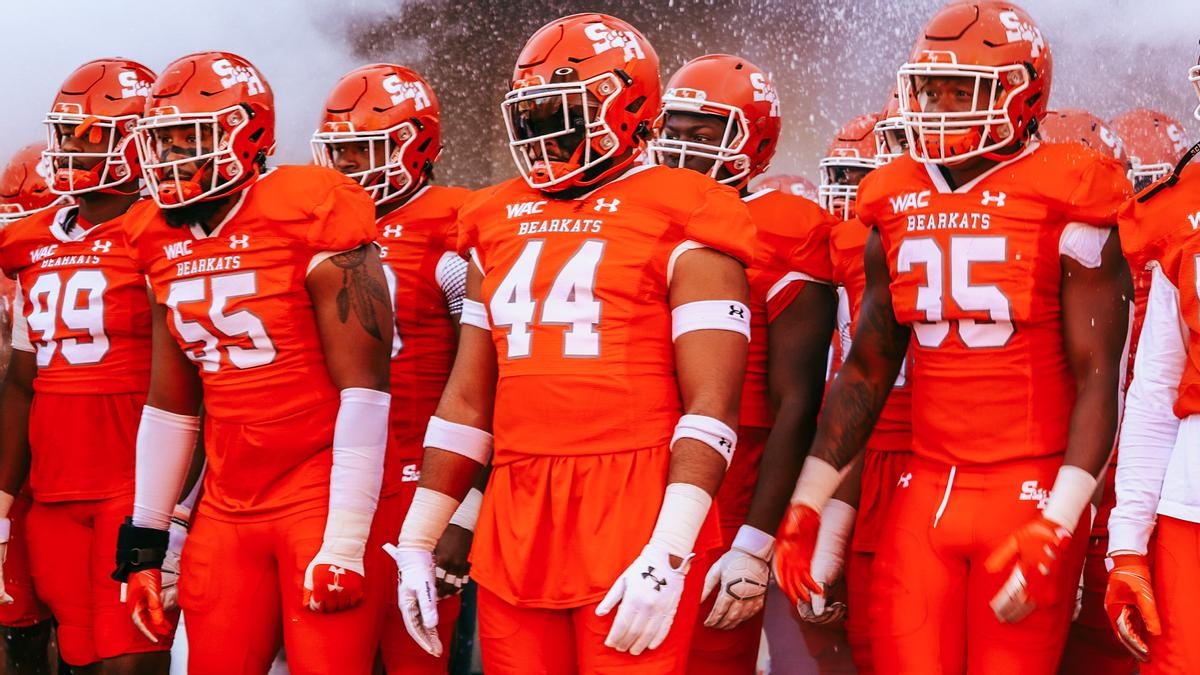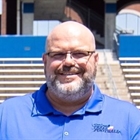Possibly the most discussed topic in the college football world today revolves around deals prospective athletes are signing with universities to capitalize on their Name, Image, and Likeness (NIL).
NIL deals quickly gained notice around the country when Quinn Ewers reportedly signed a million-dollar deal at Ohio State. Recently, quarterback Jaden Rashada made headlines when his $13 million agreement with Florida’s NIL collective went south, resulting in the Gators releasing the prospect from his National Letter of Intent.
The reality is only so many institutions have the donor base to pay players millions of dollars through a collective to attend their university, and those deals will always dominate the headlines.
“One of the things that will hurt college football down the road is if we keep on allowing the recruitment of players with the enticement of these collectives,” Sam Houston coach K.C. Keeler said.
So how will the NIL collectives at other schools be effective? By exhibiting how NIL deals were initially intended.
“The collective should be the beneficiary of those guys who are in your program and are doing all the right things,” Keeler said. “It can be beneficial for those guys who don't have a Pell Grant now because they graduated and are in grad school. We want it to benefit the guys that have been loyal members of the program.”
Benefiting the loyal members of the Bearkats athletic program is precisely why the Kat Fund was announced last September. Sam Houston’s NIL collective started collecting donations in early February, and Chief Operating Officer, Ben Sorrells, wants to add to the fan experience along with helping athletes gain spending money.
“We want to bring fans a level of access they haven’t been able to get before at Sam Houston,” Sorrells said. “It’s a way for people to give to the athletes, to the local community, and enhance the fan experience through membership benefits.”
The Kat Fund is currently operating as an LLC but is applying to become a 501c3 and is pending approval from the Internal Revenue Service. The collective has membership tiers, from being a “Walk-On” for $10 a month to becoming a Hall of Fame member for $1,000 per month. Fans can become a member at Kat-Fund.com.
Sorrells said the Kat Fund board gained inspiration from a company named basepath, which works with collectives, sponsors, and fans to engage with athletes.
“We’ve modeled the Kat Fund after basepath’s model and what they’ve done with other collectives with the membership perks and working with nonprofit organizations,” Sorrells said.
Keeler believes the Kat Fund can be effective in the same way people donate to political campaigns.
“It's a way to get a lot of small-dollar donors, and if you look at politics, a lot of people bring a lot of money in from small-dollar donors,” Keeler said. “The Kat Fund can be a way for a fan or an alum to give back in a small dollar way that they know is going directly to the players.”
One issue that athletic directors at Power 5 institutions are facing is the money given to the NIL collectives comes from the same donor base needed for the athletic department’s projects. Sam Houston hopes that Kat Fund becomes the place for small donations to go to athletes while maintaining the university-operated Champions Fund for the big-dollar donations needed for current projects.
“We’re trying to hit the sweet spot here,” Keeler said. “We’re very conscious that we have a long way to go in terms of fundraising for what we want to do to the press box and the field. We also want an indoor facility, but we realize that we’re living in a world of the collective. We hope to use the collective for small-dollar donors and keep our big-dollar people for naming rights and different projects. Only time will tell if we’re successful.”
“(Kat Fund Chief Executive Officer Josh Shepherd) and I have a good line of communication with (Sam Houston Athletic Director) Bobby Williams and Coach Keeler. Everyone is on board,” Sorrells said. “We want to do things the right way, so we work closely with the compliance office to ensure we’re doing everything legally.”
As for the fan who become members of the Kat Fund, perks range from inside information and exclusive content at KatFans.com and entry into a raffle for autographed memorabilia at the Walk-On level to an exclusive recruiting experience for two people and autographed memorabilia. KatFans.com is operated by Tim Jeske, who also serves as a board member of the collective.
Autographed memorabilia will be from current athletes and some of Sam Houston’s successful alums like former NFL quarterback Josh McCown and one of Baltimore Orioles' top prospects, Colton Cowser.
Those who receive the recruiting experience will mirror what an athlete experiences on a visit to the university, including meeting with coaches and athletes, touring the facilities, and a photo shoot.
Sorrells said the collective seeks to build a donor base and has agreements with local high schools and charity organizations for social media and personal appearances from athletes beginning in August this year.
The involvement with the community is what has Keeler the most excited. His Bearkats team is already involved in community events around Huntsville. Keeler said his team has a big event for the entire team, while each unit (offense, defense, and special team) and position group will have its own community service project each year.
Sam Houston was awarded the Get in the Game Impact Award presented by the Andy Talley Bone Marrow Foundation presented by the Maxwell Football Club in 2022. Keeler’s involvement with that organization began when he was head coach at Delaware in 2009.
“What we're excited about is they want to get the community involved along with alums, and they want to give back to the community,” Keeler said.
This article is available to our Digital Subscribers.
Click "Subscribe Now" to see a list of subscription offers.
Already a Subscriber? Sign In to access this content.


